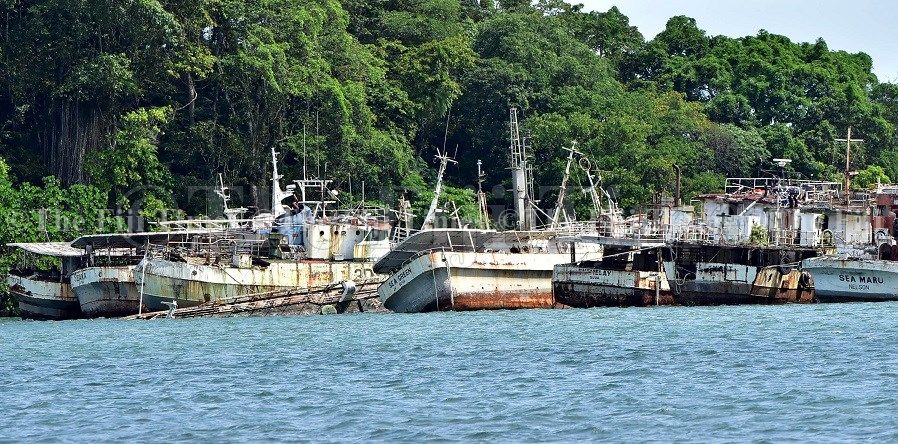Derelict vessels
I see 2025 as promising but it will only be promising if our leaders look very seriously and addressing the issues I raise in parts. These are everyday issues. Part one was on rape. Part two – derelict vessels. These vessels will threaten the very livelihood of our fellow Fijians. Apart from threatening our marine life they are truly an eyesore. There is also the issue of those that are tied up at the Narain Jetty that appear to be rusting away. The wharf is not a parking lot for aging vessels that cannot be removed. Are there fees for mooring? They must cost a fortune. Can someone look into this and see if the Government is getting these fees. Alternatively can the Government have them removed before they sink at the wharf/jetty. Tai Smith, Nasinu Sec Sch Rd, Kinoya, Nasinu
Drugs
In part one I discussed – rape. Part two – derelict vessels. Part three drugs — by far a very serious issue. Like rape, drugs removes all innocence, all sense of fair play, all sense of rationale and presents us with a lowlife who presents himself/herself as a destroyer of a decent communal existence. Sometimes even destroying themselves but not before they destroy their community. I call on the same punishment as I did for rapists – life imprisonment without parole or presidential pardon. Fiji is being used as a transit point – catch the perpetrators and imprison them in solitary confinement, without being repatriated or pardoned in any shape or form. Let’s get serious Fiji. Tai Smith, Nasinu Sec Sch Rd, Kinoya, Nasinu
Robbery in restaurant
I refer to The Fiji Times (7/1) of the robbery in Maya Dhaba in Suva where $10,000 to $15,000 was reportedly stolen. It further says in the report that this business deposits their weekly takings on Mondays. The practice of making weekly deposits is highly questionable which the owner should be aware of. I am surprised why his accountants did not advise him otherwise and why the owner has not learnt this fundamental cash handling practice. Cash would always invite break-ins and moving forward, I would suggest that the restaurant either does daily banking or go as much cash-less as possible or both. Ajai Kumar, Nadi
Safe practices
The break-in and robbery in one of Suva’s top restaurants underscores the basic security arrangements that businesses need to strictly observe, especially in a busy city like Suva. The most basic among others is that cash proceeds must be banked on a daily basis. Storing cash within the business vicinity is risky and must be avoided at all times. It was surprising that the victim of this despicable act had kept its earnings for the previous week inside the restaurant. It should be noted that the restaurant business go through a high employee turnover which increases the risk of exposing the business to leakage of inside information when cash is kept within the place of business. Especially during the festive season. Just saying. Emosi Balei, Suva
Real agenda?
Is the revolving door of Fijian power and politics in the hands of a select, yet secretive, few who shuffle along in the shadows with their secret handshake, far removed from the limelight of prying eyes and cameras? Who are these men? And what is their real agenda? Colin Deoki, Australia
Fast-paced development
Reading through the article by Jake Wise titled ‘Fast-pace developments’ (FT 06/01) where he highlighted that tourists visiting Fiji are taking notice of the country’s fast-paced growth over the years, I wonder whether it is a good thing or otherwise. The article seemed to suggest that the fast-pace development is good for Fiji, but I would like to think otherwise. Tourists have noticed the fast-pace development of Suva City physically, but I wonder if they might have noticed the fast growing issues Fiji is facing such as homelessness, street beggars, drugs and drug victims and many others, which I certainly believe are the consequences of “fast-pace development”. I would prefer a slow-pace development that takes serious consideration of people’s wellbeing rather than fast-pace development that seemed to only consider infrastructural development and economic growth, disregarding people’s wellbeing. Kositatino Tikomaibolatagane, Vuninokonoko Rd, Navua



